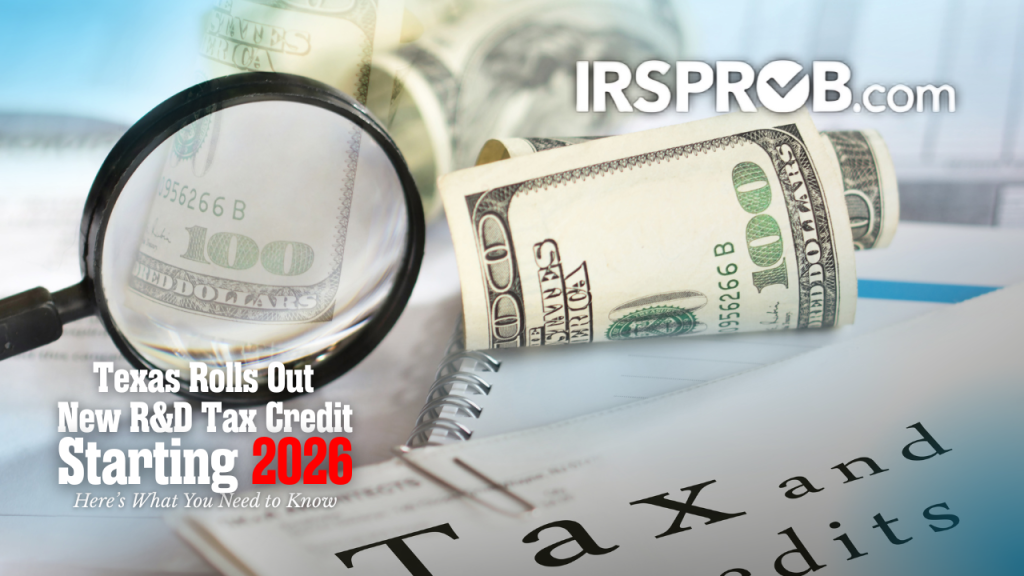
Texas businesses engaged in research and development have a major incentive coming their way. Starting January 1, 2026, the state is rolling out a completely redesigned R&D Tax Credit program that aligns more closely with federal standards, offers larger credits, and even introduces refundable options for small and veteran-owned businesses. This overhaul is a game-changer for innovation-driven companies, and understanding the new system now is key to maximizing your benefits when the change takes effect.
The R&D Tax Credit: A Tool to Fuel Innovation
The R&D Tax Credit is designed to reward companies that invest in innovation. Whether you’re developing new products, improving internal processes, or advancing proprietary technologies, you may be eligible for substantial tax relief. The credit can significantly reduce your business tax burden or, in some cases, provide direct cash refunds. Texas has had its own version of this credit for years, but the 2026 overhaul marks a shift to a more streamlined and rewarding approach.
For a deeper understanding of how federal R&D expensing rules are evolving, check out our article on The Future of R&D Expensing.
Key Changes Coming to the Texas R&D Tax Credit in 2026
The upcoming version of the R&D Tax Credit brings several major changes that business owners need to prepare for. These include:
1. Alignment with Federal Standards
2. Uniform Definition of Qualified Research Expenses (QREs)
Texas will use the same QRE definition the federal government uses. This includes wages, supplies, and contract research related to qualifying activities—so long as they happen in Texas. For companies using ASC 730 reporting, Texas will also accept those IRS-recognized amounts.
3. Statistical Sampling Now Accepted
Just like the federal program, Texas will now permit IRS-approved statistical sampling to estimate qualified expenses. This reduces administrative burden and creates consistency across tax filings.
4. Elimination of Texas-Specific Sales Tax Disqualifications
Previously, some supply expenses didn’t qualify for the Texas credit due to how sales tax was handled. Starting in 2026, if a supply expense qualifies federally, it qualifies for the Texas R&D Tax Credit, regardless of state tax nuances.
5. Increased Credit Percentages
The state is increasing its credit rates substantially. For example:
- New and increased QREs: up to 8.722%
- Research tied to Texas higher ed institutions: up to 10.903%
- Default rate for businesses with no prior QREs: 4.361%–5.451%
These boosted percentages can translate into thousands—if not millions—of dollars in added tax relief for qualifying companies.
6. Refundable Credits for Small and Veteran-Owned Businesses
Perhaps the most exciting change: eligible small businesses can receive a cash refund from the R&D Tax Credit, even if they owe no franchise tax. To qualify, businesses must be newly veteran-owned, have under $1,000 in franchise tax liability, or bring in less than $2.47 million in total revenue. This makes innovation more accessible to startups and small firms.
7. Mandatory Synchronization with Federal Amendments
If your federal return is amended or audited and your QREs change, you’re required to update your Texas filing as well. This keeps the reporting consistent across jurisdictions.
8. Repeal of Legacy Credits and Exemptions
The current Texas R&D Tax Credit system, along with related sales tax exemptions, will be repealed entirely by January 1, 2026. Only the new structure will apply moving forward.
How Businesses Can Prepare
To take full advantage of the new R&D Tax Credit, Texas companies should start preparing now:
Step 1: Audit Your Current R&D Activities
Identify which projects and expenses will qualify under both federal and Texas guidelines. Focus only on in-state research activities.
Step 2: Get Familiar with IRS Form 6765
Step 3: Explore University Partnerships
Collaborating with Texas universities can boost your R&D Tax Credit rate significantly. Consider building these partnerships ahead of time.
Step 4: Check Refund Eligibility
If you’re a small or veteran-owned business, this credit could mean cash in hand. Evaluate your eligibility early to avoid missing out.
Why IRSProb.com Should Be Your Go-To Partner
Navigating the R&D Tax Credit, especially during a major policy change, can be complex. At IRSProb.com, we specialize in helping businesses:
- Maximize every dollar of tax credit available
- Simplify compliance and avoid audit traps
- Handle paperwork and keep filings airtight
- Secure both federal and state tax credit opportunities
Final Thoughts
Texas is making it easier and more profitable for businesses to invest in innovation. The revamped R&D Tax Credit program is a bold move to stimulate economic growth through technology, process improvement, and creative development. With higher credits, easier qualification, and refund options for small players, this is a benefit every eligible Texas business should be preparing to claim by 2026.






